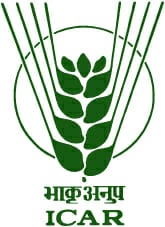
Dr. G.P. Dixit
Director, ICAR-IIPR, Kanpur
Dear Readers,
The Indian Institute of Pulses Research has play pivotal role in attaining near self-sufficiency in pulses production and improving nutritional security in the Country. ICAR-IIPR is vested with the responsibility of not only basic and applied research but also to monitor, guide and coordinate pulses research nationally. As per 3rd advance estimate of food grain production, record production of 27.5mt of pulses is expected with >63% contribution of rabi pulses with chickpea, mungbean & pigeon pea being the largest contributors to the pulse basket.A major share of the grain can be attributed to improve technologies including development of high yielding, stress resilient varieties of pulses and improved production and protection technologies.
While consistent efforts are underway to enhance genetic gain in pulses, changing climate imposes a variety of biotic and abiotic stresses also that need to be addressed for sustaining pulse production. Among biotic stresses, Fusarium wilt coupled with root rot complex is probably the most widespread disease causing substantial losses to chickpea, besides dry root rot and collar rot. While Fusarium wilt, sterility mosaic and Phytophthora blight cause substantial losses in pigeonpea; yellow mosaic, Cercospora leaf spot, powdery mildew, leaf crinkle and leaf curl cause considerable damage in Vigna crops (mungbean and urdbean). Among key insect-pests, gram pod borer (Helicoverpa ICAR-Indian Institute of Pulses Research Director’s Desk armigera) in chickpea and pigeonpea, pod fly in pigeonpea, whitefly, jassids and thrips in urdbean and mungbean cause severe damage to the respective crops. Bruchids are the most serious pest of the stored pulse grains and require topmost priority in management. Weeds also cause substantial loss to pulses. While drought and heat are concerns in the regime of climate change, waterlogging and lodging in pigeonpea, earliness in lentil, thermo insensitivity in blackgram, salinity and nutritional enhancement are few traits demanding attention in near future.
Believing in interdisciplinary and inter institutional research, IIPR is already working in collaboration with national and international research institutes. To commemorate the World Pulses Day 2023, ICAR-IIPR along with ISPRD organized International Conference on Pulses: Smart Crops for Agricultural Sustainability and Nutritional Security (ICPulses 2023) at NASC complex, New Delhi. ICPulses2023 witnessed participation of large number of pulse researchers nationally and globally along with other stakeholders. The conference was organized in nine technical sessions spread over three days wherein emphasis was laid upon need of biofortified pulse cultivars, use of advanced technologies like genetic engineering, speed breeding, marker assisted breeding, artificial intelligence, nanotechnology, big data management, etc. for increasing indigenous pulses production to gradually become a net pulses exporter. The genetic enhancement programme in pulses must include product profile development, higher yield, early maturity, no or less anti-nutritional factors, nutrient use efficient (NUE) crops, high nodulation, synchronous maturity, amenability to mechanical harvesting, resistance to biotic and abiotic stresses, and an increased focus on processing and value addition. Utilization of high throughput phenotyping, speed breeding, genome editing, complete genome sequencing of wild species, new trait discovery, functional validation of important genes, documenting disease pathogenicity in the regime of climate change, etc. for enhanced genetic gain was also emphasized. It is now time to move ahead in a spearheaded manner, prioritizing research areas and strengthening teams to achieve the goals.
(Girish Prasad Dixit)


